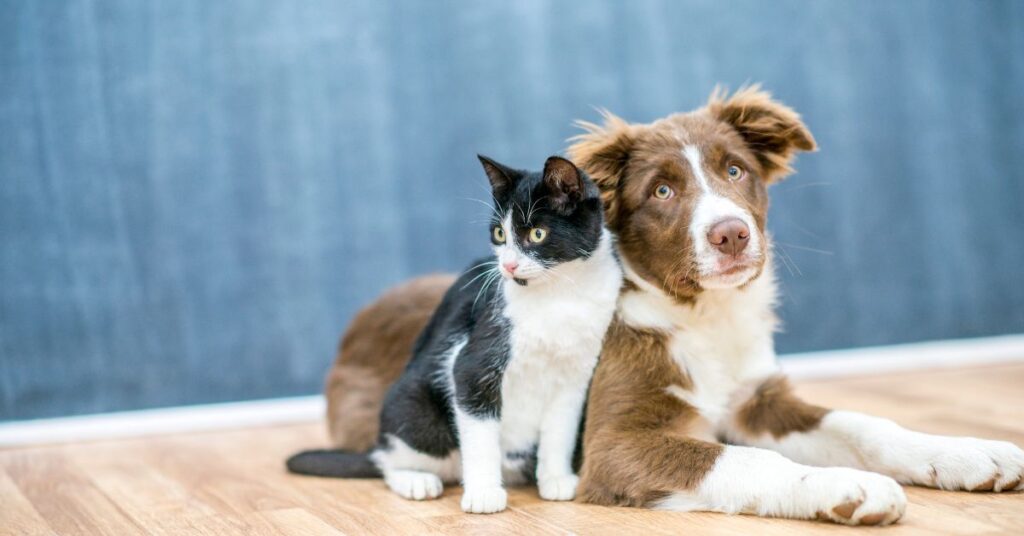Table of Contents
Your pet’s liver plays a crucial role in their overall health, aiding in digestion, detoxification, and metabolism. Ensuring your pet’s liver remains healthy is vital for their well-being. This guide provides essential tips on how to improve pet liver health, helping you support your pet’s liver function and overall health. Here are seven essential tips to improve your pet’s liver health.

1. Provide a Balanced Diet
A balanced diet is crucial for liver health:
- High-Quality Protein: Choose a diet with high-quality, easily digestible protein to support liver function.
- Essential Nutrients: Ensure the diet includes essential nutrients such as vitamins A, D, E, and K, which are vital for liver health.
- Avoid Toxins: Avoid feeding your pet foods that contain toxins or artificial additives that can burden the liver.
A balanced diet supports overall liver function and helps prevent liver disease.
2. Maintain a Healthy Weight
Obesity can put extra strain on your pet’s liver:
- Regular Exercise: Ensure your pet gets regular exercise to maintain a healthy weight.
- Portion Control: Monitor food portions and avoid overfeeding to prevent weight gain.
- Healthy Treats: Offer healthy treats in moderation to avoid unnecessary calorie intake.
Maintaining a healthy weight reduces the risk of liver disease and supports overall health.
3. Use Liver Supplements
Liver supplements can support liver health and function:
- Milk Thistle: Milk thistle is known for its liver-protective properties and can help detoxify the liver.
- SAMe (S-adenosylmethionine): SAMe is a supplement that supports liver function and helps with liver regeneration.
- Omega-3 Fatty Acids: Omega-3 fatty acids help reduce inflammation and support liver health.
Consult your veterinarian before adding supplements to ensure they are appropriate for your pet.
4. Avoid Exposure to Toxins
Minimizing exposure to toxins is crucial for liver health:
- Avoid Harmful Foods: Keep your pet away from foods that are toxic to them, such as chocolate, onions, and alcohol.
- Limit Chemical Exposure: Reduce exposure to household chemicals, pesticides, and medications that can stress the liver.
- Clean Water: Ensure your pet has access to clean, toxin-free water at all times.
Limiting exposure to toxins helps protect your pet’s liver from damage.
5. Regular Veterinary Checkups
Regular veterinary checkups are essential for monitoring liver health:
- Routine Blood Tests: Regular blood tests can help detect liver issues early and monitor liver function.
- Physical Exams: Include liver health checks in routine physical exams to catch any potential issues.
- Early Intervention: Early detection allows for prompt treatment and better management of liver conditions.
Regular veterinary checkups ensure early detection and treatment of liver issues.
6. Provide Adequate Hydration
Proper hydration is essential for liver function:
- Fresh Water: Ensure your pet has access to fresh, clean water at all times to support liver detoxification.
- Monitor Water Intake: Monitor your pet’s water intake to ensure they are drinking enough, especially in hot weather or after exercise.
- Hydrating Foods: Incorporate hydrating foods like wet pet food to help maintain hydration levels.
Adequate hydration supports liver function and overall health.
7. Reduce Stress
Stress can negatively impact liver health:
- Calm Environment: Provide a calm and stress-free environment for your pet to reduce stress levels.
- Regular Routine: Maintain a regular routine for feeding, exercise, and rest to create a sense of stability.
- Enrichment Activities: Engage your pet in enrichment activities to keep them mentally and physically stimulated.
Reducing stress helps support overall liver health and well-being.
Conclusion on How to Improve Pet Liver Health
Improving your pet’s liver health involves providing a balanced diet, maintaining a healthy weight, using liver supplements, avoiding exposure to toxins, scheduling regular veterinary checkups, ensuring adequate hydration, and reducing stress. By following these tips on how to improve pet liver health, you can support your pet’s liver function and overall well-being. For more information on pet liver health, visit the ASPCA and the AKC.
FAQs on How to Improve Pet Liver Health
What are common signs of liver problems in pets?
Common signs of liver problems in pets include jaundice (yellowing of the eyes and gums), loss of appetite, vomiting, diarrhea, increased thirst, and lethargy. If you notice any of these signs, consult your veterinarian.
Can certain foods help improve liver health in pets?
Yes, certain foods can support liver health, including lean proteins, vegetables like carrots and spinach, and fruits like apples and blueberries. Avoid foods high in fat and toxins.
How often should my pet have liver function tests?
Your veterinarian can advise on the frequency of liver function tests, but generally, annual blood tests are recommended for healthy pets. Pets with liver issues may require more frequent monitoring.
Are liver supplements safe for all pets?
Liver supplements can be beneficial, but it’s essential to consult your veterinarian before starting any new supplements to ensure they are safe and appropriate for your pet’s specific health needs.
Can liver disease in pets be cured?
While some liver diseases can be managed with diet, medication, and lifestyle changes, others may not be curable. Early detection and treatment can improve the quality of life and prognosis for pets with liver conditions.
How can I prevent liver disease in my pet?
Prevent liver disease by providing a balanced diet, maintaining a healthy weight, avoiding toxins, ensuring regular veterinary checkups, and monitoring for early signs of liver problems.











